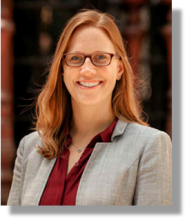MSE 298 Seminar (MDEA): One is the Loneliest Number - Multivalent and Multielectron Processes for Next-generation Batteries

Assistant Professor
Division of Chemistry and Chemical Engineering
California Institute of Technology, Pasadena
Abstract: Rechargeable Li-ion batteries revolutionized energy storage but the fundamental limitations imposed by intercalation chemistry and the cost associated with common components in Li-ion cells drive the need for new, less expensive batteries. The search for these so called “beyond Li-ion” technologies include systems based on alternative charge storage mechanisms that promise high theoretical capacity. Our lab focuses on multielectron redox using both monovalent and multivalent working ions. We work on all aspects of the cell from the anode, cathode and electrolyte to the interfaces between. We will discuss how to solubilize multivalent cations in electrolyte solvents and the effect of electrolyte speciation on the associated metal anode electrochemistry. We will also take a fundamental look at multivalent ion diffusion in the solid-state: a cornerstone process for the function of multivalent batteries. A few possible cathode chemistries will be discussed that invoke redox induced solid-state phase transitions that are caused by unconventional anion redox.
Bio: Kimberly See is an assistant professor of chemistry in the Division of Chemistry and Chemical Engineering at Caltech. She was born and raised in Colorado and received her bachelor's degree in chemistry from the Colorado School of Mines. See pursued her doctorate in chemistry at UC Santa Barbara where she worked with Ram Seshadri and Galen Stucky. She was awarded the St. Elmo Brady Future Faculty Postdoctoral Fellowship at the University of Illinois at Urbana-Champaign and worked with Andrew Gewirth in the Department of Chemistry. Now, her group at Caltech studies new chemistry for next-generation energy storage with a focus on Earth abundant, inexpensive materials. She focuses on the electrochemistry associated with multivalent and multielectron processes. Some of her recent awards include the Beckman Young Investigator Award, VW/BASF Science Award Electrochemistry and the Packard Fellowship for Science and Engineering.
Share
Upcoming Events
-
MAE 298 SEMINAR: Europa Clipper Mission Design
-
CBE 298 Seminar: Metal Electrodeposition for Modern Mineral Refining
-
MSE 298 Seminar: Quasi-1D/2D Charge-Density-Wave Materials - From Exotic Physics to Application Prospects
-
EECS Seminar: Steering Diffusion Models for Generative AI, From Multimodal Priors to Test-Time Scaling
-
CBE 298 Seminar: Finding Catalysts of Gut Reactions - The Gut Microbiota in Disease Onset and Treatment
